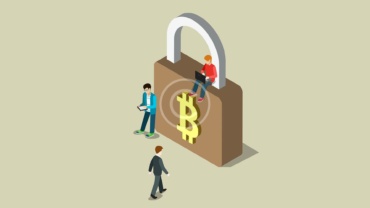Introduction: Why Ethereum Scam Risk is on the Rise
Ethereum is perhaps the most prominent blockchain in the crypto space and with an exploding landscape of decentralized applications (DApps), NFTs, and DeFi platforms, it’s no surprise that scammers frequent these spaces where money flows freely. If you’re new to Ethereum, or even more experience, it’s essential to understand how these scams operate and even more importantly how to avoid them.
Staying safe doesn’t mean you need to be the great coder of age. Having a vague notion of red flags and smart habits will work wonders at helping you not fall into traps.
1. 🧧 Fake Airdrops and Giveaways
One of the most common Ethereum scams known to exist, is a fake giveaway. Scammers will promise you if you send them ETH first – they would “double your ETH” under the false pretense of an airdrop or promotional campaign.
They’ll build websites and social accounts that appear close to official ones. You’ll see someone comment on the posts which read something like “Wow, it worked!” or “Just received double ETH!” – most are bots or fake testimonials.
To avoid:
-
Don’t ever send ETH for a reward claim.
-
Real giveaways do NOT ask for payment.
-
Cross-reference the official site or social media.
-
Use credible pages like CoinMarketCap’s airdrop tracker to verify legitimate events.
2. 📧 Phishing Wallet Ethereum Scams
Phishing is a popular attack method used by crypto scammers. Whether it’s via email, pop-ups, or even Google ads, they direct you to a fake wallet login page.
If the victim types in their seed phrase or private key into the phishing page before realizing it’s a fake, your funds are GONE just like that.
Ways to avoid it:
-
Never type in your seed phrase online and go outside of a trusted wallet link.
-
Bookmark your wallet’s official URL (like MetaMask or Trust Wallet).
-
Add a browser extension for phishing, like MetaMask’s phishing detector.
3. 🛠️ Phony Support on Telegram or Twitter
If you tweet about a problem with your Ethereum wallet or app, you might find support agents that will respond to you very quickly to provide help with your issue. These will be either bots or scammers with fake profiles offering to provide support.
They will ask for either your wallet information, or a link will be provided to a fake site for you to willingly provide sensitive information.
How to avoid:
-
True support never requests a seed phrase from an individual.
-
Always contact teams via the official sources on their websites and never through any other messaging systems or friend requests.
-
Do not engage with unsolicited DMs or friend requests.
4. 🌐 Bad DApps / Smart Contracts
Not every DApp is designed the same way. Some contain hard-coded traps that enable the contract deployer, owner or acknowledged originator to drain your tokens or lock your tokens up in the wallet or DApp (decentralized application), effectively ensuring you are unable to access your tokens again.
These apps look attractive—they tell you that you can earn high returns, they open with flashy animations, or they simply have a design that makes you want to believe!
How to avoid:
-
Always check the DApps / smart contract via Etherscan (or something similar)
-
Use tools such as Token Sniffer or DeFi Safety to analyze their reputation and ratings
-
Engage with verified underway or audited contracts and teams with visible or transparent teams
5️⃣ Rug Pulls for New Tokens and DeFi Projects
From time to time, you may see a shiny new token, with fast-growing value and plenty of excitement. Then just when you put some money down, boom! The developers pull all the liquidity out, making your tokens worthless. It is called a rug pull.
These kinds of scams are prevalent in new DeFi projects, in particular with anonymous teams.
Here are a few ways to avoid it:
-
Look to see if liquidity is locked (use something like Team Finance)
-
Avoid coins that go to the moon without any clear fundamentals overnight
-
Don’t invest in projects that don’t have some team transparency and/or a whitepaper
🛡️ Essential Safety Tips for Ethereum Users
Even with increased sophistication of scams, a few basic habits can cut your risk significantly:
-
✅ Use a hardware wallet if you are spending large sums
-
✅ Stick to menus I recommend and apps that are well reviewed
🧩 Wrap it up: Be Smart, Be Safe
Ethereum presents you with massive potential but also a risk. You can utilize Blockchain technology, but if you remain smart and cautious, you may also be open to scammers.
If you’re just unsure, remember – if it doesn’t feel safe, then slow down, do due diligence, and ask yourself:
Does this seem too good to be true?
Because it probably is.





